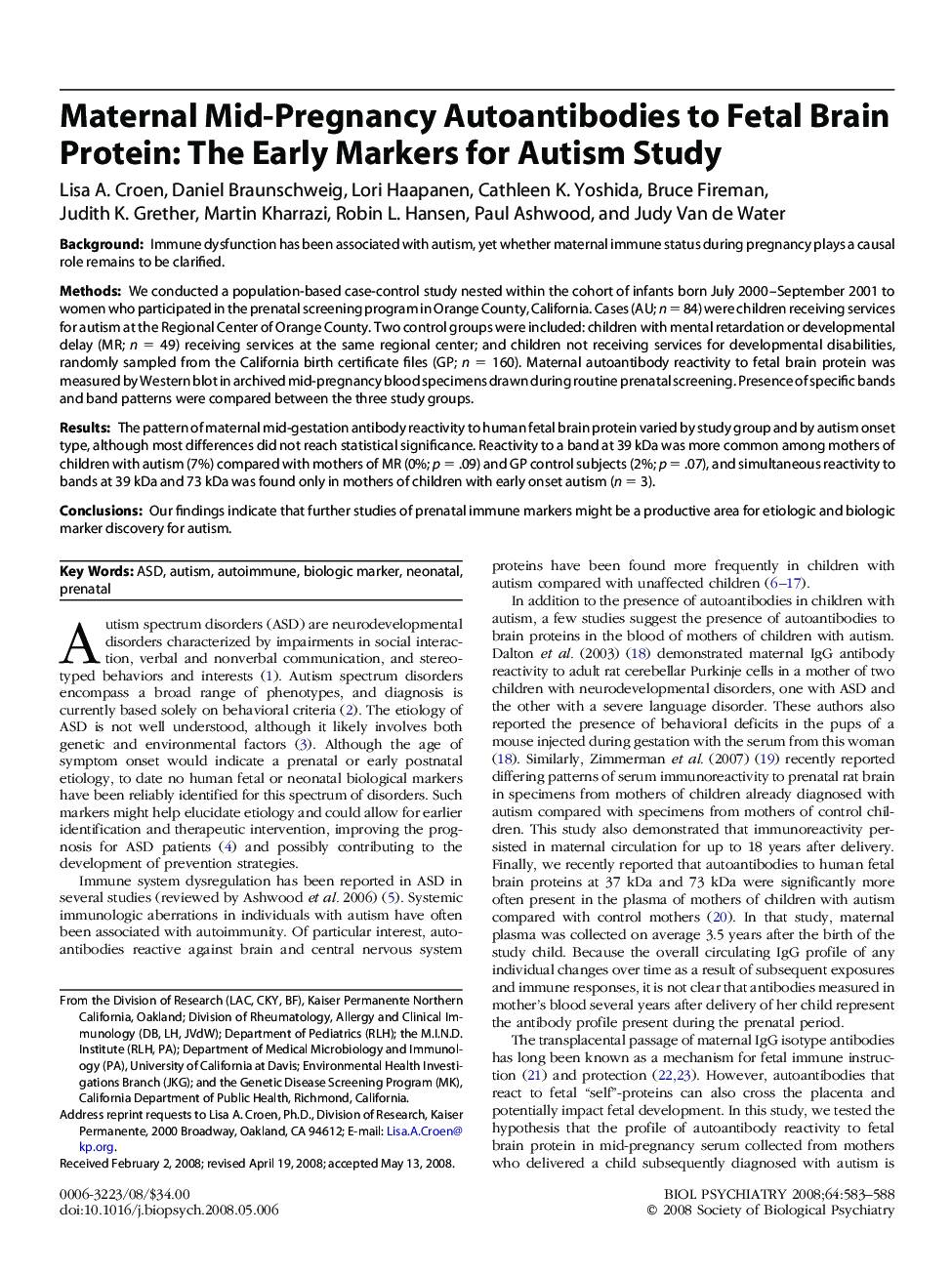| Article ID | Journal | Published Year | Pages | File Type |
|---|---|---|---|---|
| 6229029 | Biological Psychiatry | 2008 | 6 Pages |
BackgroundImmune dysfunction has been associated with autism, yet whether maternal immune status during pregnancy plays a causal role remains to be clarified.MethodsWe conducted a population-based case-control study nested within the cohort of infants born July 2000-September 2001 to women who participated in the prenatal screening program in Orange County, California. Cases (AU; n = 84) were children receiving services for autism at the Regional Center of Orange County. Two control groups were included: children with mental retardation or developmental delay (MR; n = 49) receiving services at the same regional center; and children not receiving services for developmental disabilities, randomly sampled from the California birth certificate files (GP; n = 160). Maternal autoantibody reactivity to fetal brain protein was measured by Western blot in archived mid-pregnancy blood specimens drawn during routine prenatal screening. Presence of specific bands and band patterns were compared between the three study groups.ResultsThe pattern of maternal mid-gestation antibody reactivity to human fetal brain protein varied by study group and by autism onset type, although most differences did not reach statistical significance. Reactivity to a band at 39 kDa was more common among mothers of children with autism (7%) compared with mothers of MR (0%; p = .09) and GP control subjects (2%; p = .07), and simultaneous reactivity to bands at 39 kDa and 73 kDa was found only in mothers of children with early onset autism (n = 3).ConclusionsOur findings indicate that further studies of prenatal immune markers might be a productive area for etiologic and biologic marker discovery for autism.
